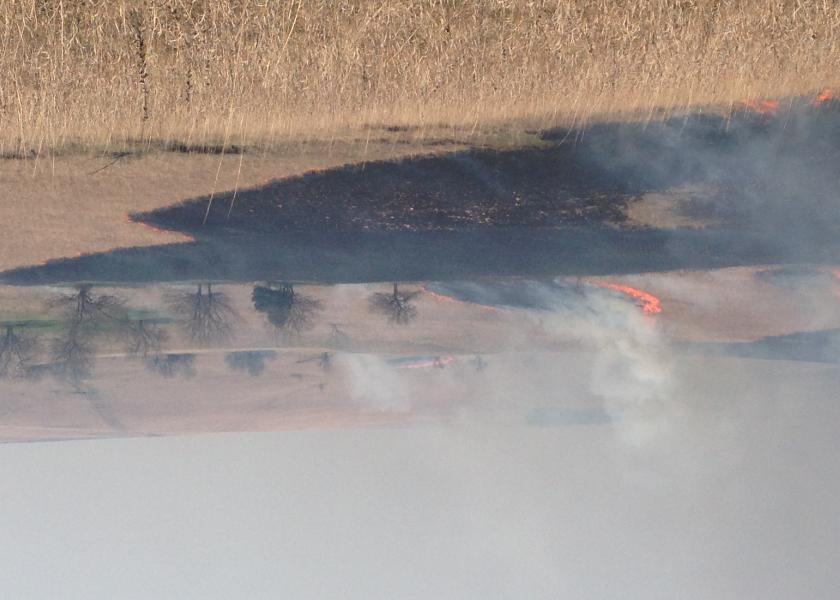COVID-19: Kansas Ranchers Urged To Reduce Burning

The COVID-19 pandemic will impact Kansas and Oklahoma ranchers who routinely burn native grasslands in the spring. Fire is a tool ranchers use in the Kansas Flint Hills to eliminate weeds, woody plants and other invasive species in native grass pastures, but this year the Kansas Department of Health and Environment is asking land owners and range managers to voluntarily reduce the number of acres they plan to burn this spring.
“With the potential for this pandemic overwhelming the state’s medical facilities, any additional respiratory concerns that could be produced from breathing smoke from prescribed fire need to be mitigated,” Dr. Lee Norman, Kansas Department of Health and Environment Secretary, said.
Multiple research studies suggest average daily gains for stocker cattle are increased a quarter-pound per head per day or more on Flint Hills pastures that were burned in the spring.

The KDHE says common health problems related to smoke can include burning eyes, runny nose, coughing and illnesses such as bronchitis. Individuals with respiratory issues, including COVID-19, pre-existing heart or lung diseases, children and the elderly may experience worse symptoms.
With resources of the county emergency response staff already being taxed with COVID-19 response, it is important to minimize responses that would come with prescribed fire activity, KDHE says.
The Flint Hills Ecoregion in eastern Kansas and northern Oklahoma, is designated as a distinct region because it has the most dense coverage of intact tallgrass prairie in North America. The region is roughly 90 miles wide and 160 long, encompassing nearly 10,000 square miles (more than 6 million acres).
KDHE has developed a Smoke Model online (ksfire.org) tool to assist land managers in assessing air quality conditions. KDHE encourages land managers to consult the model if they choose to burn as the model indicates the level at which a burn would contribute to urban area air quality problems. Secretary of Agriculture Mike Beam urges land managers to refrain from burning, especially if your area is predicted in the large (red) contribution range.
“Prescribed burning is a valuable land management tool in the efforts to fight invasive species and maximize land productivity, and this request should not be interpreted as an indictment of the practice of burning,” Beam said. “However, the circumstances surrounding the coronavirus pandemic have created a situation that calls for reducing burned acres this spring.”







